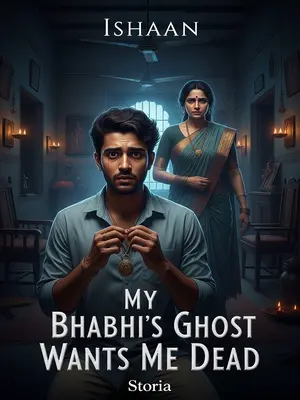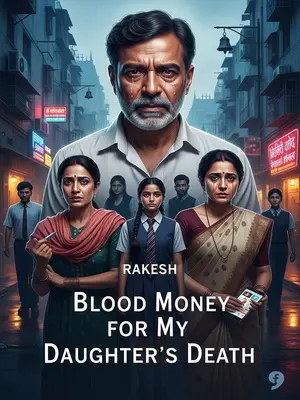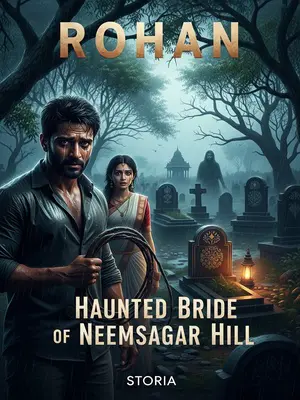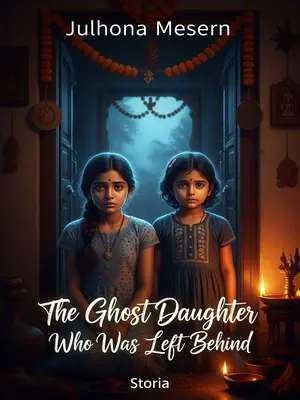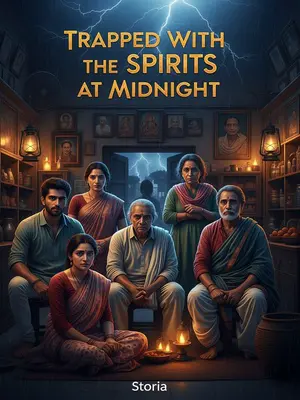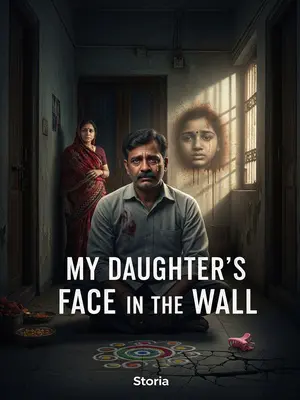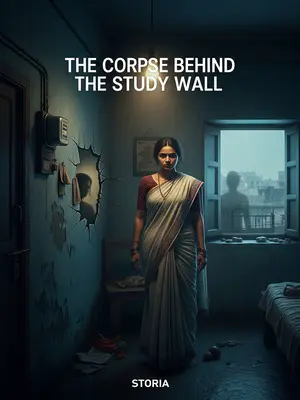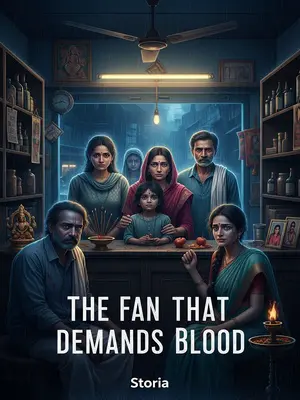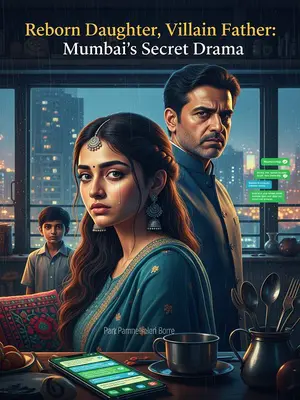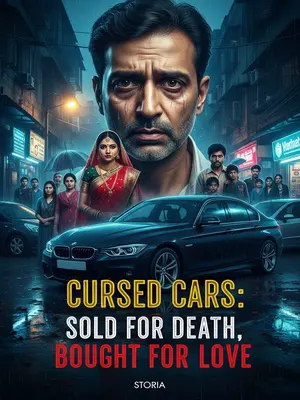Chapter 1: Shadows on the Ghat Road
Don’t stare at the scene when you pass by a road accident. The tang of petrol and the distant wail of a siren always made me look away, just like Amma taught.
In India, our elders always say—never invite bad luck by peering too closely at someone else’s misfortune. Amma used to scold, “Why do you want to bring someone’s dukh home, beta? Eyes down, keep walking.”
If you see someone trying to hitch a ride at midnight, don’t stop so casually.
Here, on highways stretching past sugarcane fields and haunted by old stories, nobody trusts a midnight silhouette. My own lorry mates from Dharwad to Daman would mutter, “Raat mein rukne ka nahi, bhai. You never know who—or what—you’ll pick up.”
And don’t think that just because you drive a big, imposing truck, trouble can’t find you.
My Guruji’s warnings have stayed with me for over ten years.
I still remember Guruji’s stern voice during chai breaks at our dhaba, “Beta Rao, ek baat yaad rakhna. This world has things you cannot fight with just size or steel.”
But tonight, I broke the rules.
Around midnight, I came across a family of four waving frantically at the roadside, trying to flag me down.
Their desperation struck a chord in my chest, the way only a fellow traveller’s fear can. The air smelled faintly of burnt diesel and cold sweat.
The man, seeing my headlights, folded his hands in a desperate namaste, almost falling to his knees on the gravel.
He was pleading, almost in the way you see at railway stations when someone’s lost their child. In the yellow beam of my headlights, the gravel sparkled, and his form looked small and broken.
Their black sedan was parked crookedly by the road, as if it had broken down, and all four of them looked frightened and shaken.
From the other side of the road, the silence of the ghats was broken only by the chirping of crickets and the distant cry of a nightjar. Their car’s hazard lights blinked like an SOS in the darkness.
They shuffled in quickly, shoes scuffing the metal step, the boy clutching a half-empty water bottle.
I let them climb into the truck. The man, his face full of terror, told me a strange red sports car had just been chasing them on the ghat road.
The children’s faces were streaked with tears and sweat. The woman was gripping a jute handbag so hard her knuckles had turned white.
I told him not to worry—after all, I was driving a heavy lorry, and no car would dare mess with me.
I gave a reassuring nod, puffing out my chest. In this Tata truck, with Maa Durga’s sticker on my dashboard and a lemon-chilli charm dangling, I felt invincible, like nothing could touch us now.
Just then, the radio started broadcasting a traffic accident report.
On this very stretch of ghat road, a red sports car and a black sedan had been involved in a serious crash.
The driver of the red sports car died on the spot.
A cold shiver ran down my arms, even though I told myself it was just coincidence.
1
I switched off the radio immediately. The accident report was cut off mid-sentence.
The sudden silence in the cab was heavy, like after a thunderclap. The radio’s static seemed to linger for a moment before disappearing.
The man in the passenger seat seemed even more frightened, his face pale as a sheet.
I could see sweat gathering at his temples. He clutched at the dashboard like a drowning man grabbing for driftwood.
"Arrey, kya kismat hai? The same red sports car was after us just now only!"
His voice quavered, eyes darting between me and the rearview mirror, as though searching for reassurance or a sign from the gods.
His wife and their son and daughter in the back seat shrank back, exchanging anxious glances.
The boy was rubbing his palms on his jeans, eyes fixed on the dirty floor mat. The girl pressed herself against her mother, her breath coming out in quick gasps.
"That accident happened three years ago. What we just heard was a news segment reviewing past incidents," I said, pulling out a cigarette and handing it to the man in the passenger seat.
I struck a match on the dashboard, the flame flickering as the truck bounced. The smoke curled up, mixing with the scent of cardamom from my tiffin.
Only then did he breathe a sigh of relief. He took the cigarette and said, "Bhaiya, what’s your surname?"
His hands shook as he held the cigarette to his lips, but his tone was softer now, almost grateful.
"My surname is Mehra. Just call me Old Mehra. This is my wife, Anjali."
He pointed backward without turning. The gesture was tired, but polite, as if he was used to introducing his family on long, weary journeys.
"My surname is Rao. Rao Chandran." I nodded to Anjali through the rearview mirror.
I caught her eye—she gave a small, respectful nod, the kind you’d give an elder at a temple.
Anjali was still holding her daughter, with her son sitting next to her. She smiled at me as well.
Her smile was hesitant, lips trembling at the edges, but it was an effort to be courteous, even in distress.
"We really have to thank Bhaiya Rao this time," Old Mehra sighed, expressing his gratitude. "We were just picking up our daughter, planning to go home together. Who could have guessed we’d run into something like this?"
He looked heavenwards for a moment, murmuring under his breath as if invoking the family kuldevi’s protection.
"No matter how I think about it, it gives me the chills. When we get home, we’ll have to visit the mandir and do a puja," Anjali added.
She touched her mangalsutra absently, eyes glistening. Her fingers lingered on the black beads, lips moving in a silent prayer—Om Shanti, Om Shanti. Even in the gloom, I could make out the vermillion on her forehead—a small, unwavering streak.
"Is your daughter in college?" I glanced at the girl in Anjali’s arms. She wasn’t a little girl anymore—she looked about twenty.
She had the slim, uncertain shoulders of someone still caught between childhood and adulthood. Her salwar kameez was crumpled, as if she’d slept in it.
Anjali gently stroked her daughter’s head, her face full of affection. "Yes, she’s in college."
The tenderness in her gesture was familiar; it reminded me of my own amma’s caress after a long, tiring day.
"It’s not a holiday right now. Why is she coming home?" I asked again.
I tried to keep my tone light, but the curiosity was genuine. It was rare for college students to visit home unless there was a festival or an emergency.
Anjali’s expression froze for a moment, but before she could answer, the son suddenly started coughing.
The sound cut through the tension like a knife. The boy’s shoulders hunched, and he looked down, trying to hide his face.
It didn’t sound like a normal cough—harsh and dry, with heavy, rattling breaths.
The kind of cough you hear in government hospital corridors, echoing off the cement walls.
Old Mehra didn’t turn to check on his son. Instead, he warned, "Kabir, bear with it. Don’t make strange noises."
There was a pleading edge to his voice, as though too much noise might attract something lurking in the night.
The boy seemed scared and immediately stopped coughing.
He bit his lip, nodding meekly, his dark eyes downcast.
"Arrey, there’s no need for that. If the kid isn’t feeling well, why make him hold it in?" I said to Old Mehra.
I reached over and tapped Kabir’s knee gently, the way uncles do in the village to comfort a frightened child.
Old Mehra gave an awkward smile.
He looked away, his fingers drumming nervously on the seat cover. The air inside the cab felt heavier, the tension stretching like the tarpaulin ropes tied to my truck.

